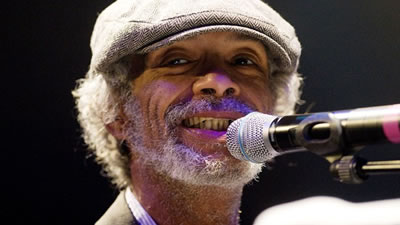|
"The Revolution Will Not Be Televised" Saturday, May 28, 2011 Just came across this article announcing the passing of Gil Scott-Heron. As I have been doing the last two months, I had been scanning the big news outfits for reports about events in Libya (especially Misrata, which seems to me to be the linchpin of the revolution there.) I ran across that article; the name sounded familiar; and the phrase "godfather of rap" got my attention. He was, I have just learned, the writer of "The Revolution Will Not Be Televised." I was living at 54 Green Street at the corner of Blanche (Neither address nor corner are extant.) when that "song" or poem was released. It made a great deal of sense to me.  It posited that stopping the war and the concomitant racism would not be accomplished by liberals sitting on their couches watching television to determine the truth of 1960's history. The truth of the pseudo-musical piece was borne out by events. The victims of the Kent State Massacre (white victims) paid the price and saved this country from a far worse fate of more riots and class warfare, such as has happened, for example, when Russians had had enough and as is happening in the Arab Spring.
It posited that stopping the war and the concomitant racism would not be accomplished by liberals sitting on their couches watching television to determine the truth of 1960's history. The truth of the pseudo-musical piece was borne out by events. The victims of the Kent State Massacre (white victims) paid the price and saved this country from a far worse fate of more riots and class warfare, such as has happened, for example, when Russians had had enough and as is happening in the Arab Spring.
Don't know nuthin bout rap; think it's all crap. No music; not much sense. And the purveyors seem pretty fuckin dense. —And musically impaired and therefore not something to be placed under the rubric "music." However, when the '60's were turning into the '70's, when that song was released, it sounded to me a lot like the truth of the matter. As stated, I was living at the corner of Green and Blanche Streets. I remember looking out my third-floor bedroom window at night and seeing Cambridge police marching in formation, four abreast, around the front and side of the three-decker in which my peacenik self was spying in trepidation. In retrospect, I suppose that there may have been no particular reason that they were marching around my corner but that the police station happened to be located at the corner of Green Street and Western Avenue, and it was just, perhaps, a convenient place to drill. But why at night? Scary stuff! Also at that corner I had found a bundle of Black Panther newspapers, which expounded on such topics as the importance of killing one hundred before they got you and about the value of an M-16. Thus, I still do not know just why I saw those cops doing that on that night. Later that spring some white kids were shot to death in the good ole US of A —not on TV like Vietnam— and things started to change. The change was not just some theoretical or philosophical shift for me; I had already been dodging the draft for a couple of years. Fifty-four Green Street was the last address that I reported to the Selective Service System. I was prime meat at the height of the Vietnam War, and, if I had been living almost anywhere but the zany world of Cambridge, I would have some very less tolerable memories of my twenties. Scott-Heron's poetry gave my difficult situation, the robbery of my youth, a political perspective. It also helped me to understand how much I had to learn to overcome my own racism. "The Revolution Will Not Be Televised" remains a very entertaining poem for those of us who know the contemporary references and an historical landmark for many of us —black and white; cop and protester; vet and dodger— who navigated those tempests. |